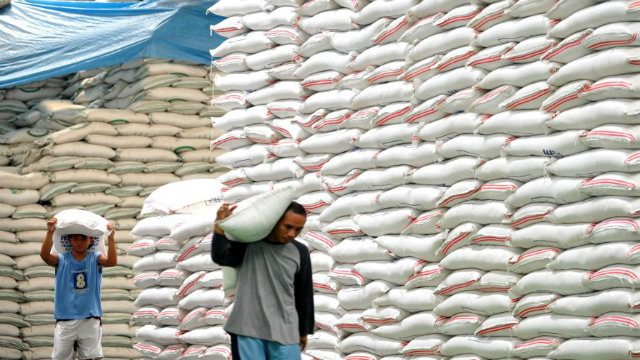SUMMARY
This is AI generated summarization, which may have errors. For context, always refer to the full article.

MANILA, Philippines – After the failed bidding for the importation of rice buffer stocks on August 27, Food Security chief Francis Pangilinan said the government used conservative estimates in determining the approved budget for contract (ABC) for the shipments.
“We tried to bring it down as much as possible because we don’t want to burden the government with such a huge expense. That is why we put it in conservative estimates,” Pangilinan said on the sidelines of a coconut industry stakeholder meeting on Thursday, August 28.
“Market prices are very difficult to predict and it’s very difficult to over budget. So we will be discussing that according to the prevailing market prices,” Pangilinan added.
The National Food Authority (NFA) special bids and awards committee on Wednesday rejected all bids for the importation of 500,000 metric tons (MT) rice buffer stock as all offers were way below the ABC of $456.60 per MT.
The NFA is expected to rebid the supply contract by amending the ABC in the terms of reference, and possibly the timeline as the first tranche of deliveries are scheduled for end-September.
Once the rebidding for the contract is open, new suppliers may join the tender.
Bids submitted by LG International, Vietnam Northern Food Corporation (Vinafood 1), Louis Dreyfus Corp., and Vietnam Southern Food Corporation (Vinafood 2) ranged from $460 per MT to as high as $496.75 per MT.
None of the bidders are prepared to supply the full volume. Only Vinafood 2 is prepared to supply as much as 400,000 MT. The 3 others were only prepared to supply 200,000 MT, 100,000 MT, and 50,000 MT.
The high bids submitted by importers imply that they are unwilling to sell supplies at low prices because of current high prices in the world market, brought about by the prevailing lean season in Southeast Asia.
Sticking to the plan
The government is still considering to procure the volume through government-to-government procurement, which would narrow down the supply competition between Cambodia and Vietnam – the only two countries with supply agreements with the Philippines.
A source from the Department of Agriculture (DA) said Thailand has not yet renewed its supply agreement with the Philippines.
Either way, the government would strive to bring in stocks within the year, preferably within the original delivery period of September. “We’re working on the same delivery date by end of September,” Pangilinan reiterated.
There is also a large demand for imports as Indonesia is procuring 500,000 MT of rice this year.
The NFA Council has also approved on standby the importation of another 500,000 MT for this year if needed.
The Philippines may reach 98% rice self-sufficiency by the end of 2014, Agriculture Secretary Proceso Alcala said during his department’s budget hearing on August 13.
“We project that we will be 96%-98% rice self-sufficient in 2014,” Alcala previously said.
The projection though does not consider typhoons that may again damage the agricultural sector this year.
The Philippines is currently 96% self-sufficient in rice. It did not meet its target of 100% self-sufficiency in 2013 because of damage caused by typhoons, notably Super Typhoon Yolanda (Haiyan), Alcala said. – Rappler.com
Add a comment
How does this make you feel?
There are no comments yet. Add your comment to start the conversation.